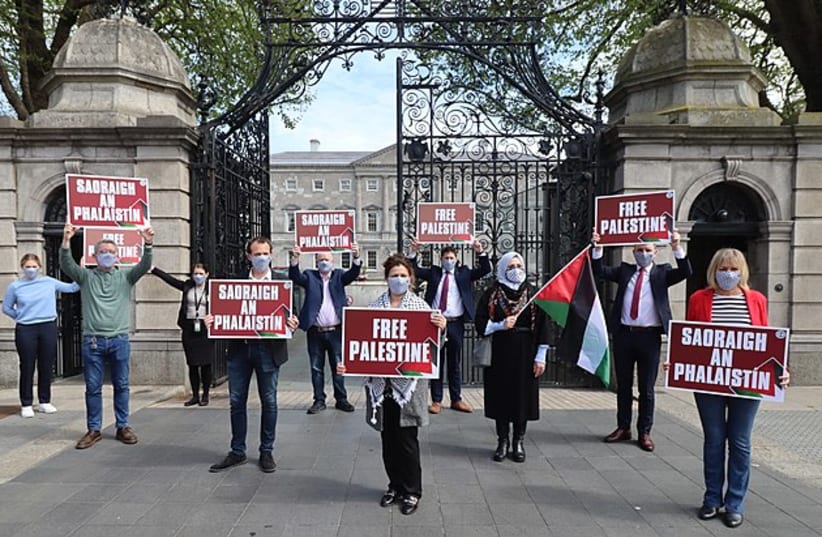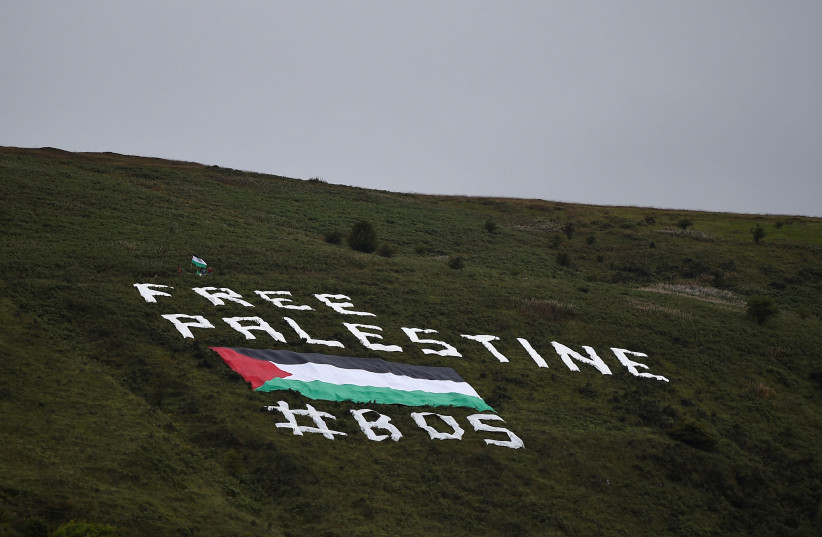A bill that would require Ireland’s Strategic Investment Fund to divest from businesses operating in Judea and Samaria was set to go to a vote in Dublin on Wednesday.
The investment fund put a total of €1.19 million, 0.01% of ISIF’s total equity investments of €799 million in 2021, into Israeli companies, according to the Ireland-Israel Alliance. Only €150,000 of that money was invested in businesses known to operate in the West Bank.
The bill would have the Strategic Investment Fund “divest itself of all assets, and to prohibit future investments in any companies, included on the UN Database of companies that operate within the illegal Israeli settlements,” Sinn Féin lawmaker John Brady wrote on his party’s website.
Referring to a 2021 motion in which the Dáil, the lower house of the Irish legislature, declared Israel’s presence in the West Bank annexation, and therefore a war crime, Brady said: “While Ireland has been critical of ongoing expansion of illegal settlements, Irish taxpayers have been made shareholders in the actions that we, as legislators... unanimously decreed as illegal.”
Brady claimed the fund “has invested Irish taxpayers’ money in nine of the 112 companies contained in the UN Database,” including four Israeli banks. Brady, who was demoted from holding his party’s foreign affairs portfolio last month, wrote the claim on the Sinn Féin website last week and in a video posted to Twitter on Tuesday.
However, contrary to Brady’s claim, the ISIF invested in nine Israeli companies, but only four of them are on the UN blacklist: Bank Hapoalim, Bank Leumi, Israel Discount Bank and Mizrahi Tefahot Bank.
Ireland-Israel Alliance’s Teresa Trainor said that Brady’s mistake indicates that “there is no limit to the pettiness of anti-Israel activity – even if all nine companies listed by the ISIF traded in the territories, the value of the ISIF investment is minuscule. This bill is an excellent example of the sort of reflexive anti-Israel action that does nothing to resolve the conflict or make Palestinian lives better in any way.”
Kohelet Policy Forum International Director Eugene Kontorovich, who was instrumental in the promotion of bills discouraging the boycott or divestment from Israel in the US, tweeted: “Sinn Féin [in the] Irish parliament wants to end Irish investment in ‘companies operating in settlements.’ Will they divest from Allianz, BNP Paribas [and] Hima Cement, which support settlement infrastructure in Northern Cyprus and Western Sahara? Of course not. It’s not a settlement boycott, it’s a Jew-boycott.”
Research by the Kohelet Forum found that ISIF invested in the following companies that operate in occupied territories in Northern Cyprus and Western Sahara: Banco Bilbao, Allianz, Danske Bank, Zurich Insurance and Finance, BNP Paribas Bank, Vodafone, and LafargeHolcim.
The controversy surrounding Nakba Day
In addition, Kontorovich shared an image from the Sinn Féin Twitter account marking “Nakba 75” along with “end illegal settlements,” writing: “it’s quite clear that their opposition to ‘settlements’ is a polite way to object to Jews having a home of their own. See their conflation of post-67 communities and ‘the Nakba,’ as Arabs call Israel’s independence.”
“Nakba Day” is the day on which Palestinians mark the “catastrophe” – the translation of the Arabic word “nakba” – of Israel’s establishment, painting Palestinians solely as victims and not a party to the 1948 war in which Arab armies attacked the nascent Jewish state. Settlements refer to Israeli communities on land that came under Israeli control after it won the Six Day War in 1967. While much of the world opposes Israeli settlements, marking the "Nakba" implies opposition to Israel’s existence.
Brady noted in his blog post on the Sinn Féin website that the vote on the “Illegal Israeli Settlements Divestment Bill” would be held in the Dáil on the day after “Nakba Day,” to “send a real message of Ireland’s commitment to Palestinian human rights.”

